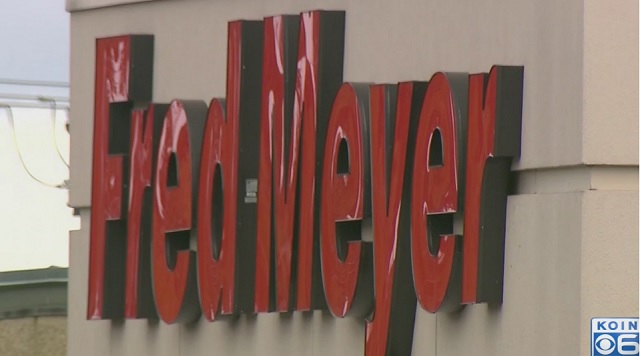PORTLAND, Ore. (KOIN) — Even though both sides are still making proposals and saying a strike is a last resort, officials with Fred Meyer are looking for temporary workers if a strike does happen.
Fred Meyer has posted signs offering replacement workers jobs starting at $15 an hour if the unionized associated go on strike. Store executives said they’ve started advertising and hosting job fairs for temporary workers.
And that has the union members fired up.
“Members are furious and rightfully so,” said Kelley McAllister, the Communications Director for UFCW Local 555. “They’re trying to hire temporary workers and then ask our folks who are making $2 to $3 an hour less to train those people? That feels like a slap in the face.”

McAllister said the temporary workers wage “demonstrates that Fred Meyer can actually afford to pay those workers more than they actually are”
Jeffery Temple, the Director of Corporate Affairs for Fred Meyer spoke by phone with KOIN 6 News. He said the $15-an-hour wage for the temporary workers “doesn’t include the premium healthcare or retirement pension that the company pays for our associates.”
Read: Fred Meyer collective bargaining agreement update
He said they’re “hopeful that there won’t be a strike. But if there is, people need access to food, everyone needs to eat still. So we’re doing our due diligence to post for replacement workers to keep our stores open if need be.”
Temple said their goal “is to avoid a strike and reach a fair and balanced outcome that works well for both our associates and our stores.”
In August, 94% of union members voted to authorize a strike and will learn the next steps on Tuesday. Union leaders said they’ll be announcing an economic action — not necessarily a strike — at 1 p.m. Tuesday.
McAllister said Fred Meyer’s actions are “worker intimidation.”

“We would like to see our workers treated with respect,” she said. “We have so many workers on foodstamps, we have people who are living in their cars, in the breakrooms, out behind the stores.”
“As a community,” she told KOIN 6 News, “we can’t let the people who sell us our groceries not be able to buy groceries themselves.”